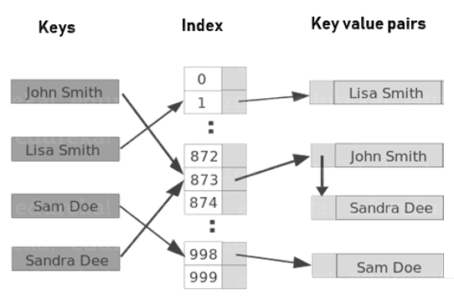Why Are Strings Immutable in Java? Comprehensive Guide for Beginners
Why Are Strings Immutable in Java? Comprehensive Guide for Beginners
Blog Article
What Is Unalterable Strings and How It Functions
In the realm of programs, recognizing the principle of immutable strings is vital for creating durable and secure applications. Unalterable strings refer to strings that can not be modified after they are developed, making certain data honesty and predictability within the code.
The Essentials of Unalterable Strings
Unalterable strings, as a basic idea in programming, are personality sequences that can not be transformed as soon as they are developed. This implies that as soon as a string is appointed a value, that value can not be altered. In languages like Python and Java, strings are immutable items, causing various implications in terms of memory management and information integrity.
Among the vital advantages of immutable strings is that they give a complacency in information control. Because the web content of an unalterable string can not be modified, it makes sure that the original data remains undamaged, lowering the risk of unexpected changes during program execution (Why are strings immutable in Java?). This residential property also simplifies debugging procedures, as designers can rely on that once a string is defined, its value will certainly not be accidentally modified
Moreover, unalterable strings assist in reliable memory use. When a new string is developed based on an existing one, as opposed to modifying the original string, the new value is kept independently. This strategy boosts efficiency by minimizing memory fragmentation and simplifying memory appropriation procedures. Generally, comprehending the basics of unalterable strings is critical for mastering programming concepts and enhancing code efficiency.
Advantages of Immutable Strings
Structure upon the safety and effectiveness benefits of unalterable strings, their advantages reach enhancing code reliability and streamlining concurrent programs tasks. By being immutable, strings can not be changed after development, which eliminates the threat of unplanned adjustments in the data they store. This inherent immutability makes certain that once a string is created, its value remains continuous throughout the program's execution, lowering the chances of bugs caused by unexpected alterations.
Additionally, immutable strings add to code integrity by making it much easier to reason regarding the state of a program. Because strings can not be altered, designers can trust that a string will constantly hold the same worth, simplifying debugging and upkeep efforts. This predictability causes much more trustworthy and steady codebases.

Application in Programs Languages
Within various programming languages, the unification of immutable strings is a basic element that impacts just how data is taken care of and controlled within code structures. The application of immutable strings differs throughout different programming languages, with each language supplying its own devices to support this principle.

On the other hand, languages like C and C++ do not have integrated support for unalterable strings. Designers in these languages have to manually execute immutability by applying policies within their code to avoid direct alterations to string objects.
Ideal Practices for Working With Unalterable Strings
When handling immutable strings in shows languages like Java and Python, adhering to ideal techniques makes sure safe and secure and effective data adjustment. One of the crucial best methods is to make use of StringBuilder or StringBuffer rather than straight manipulating strings, particularly when handling considerable concatenation operations. These courses provide mutable choices for string adjustment, assisting to stay clear of unnecessary memory allotments and enhancing performance.
One more ideal technique is to utilize string interpolation or formatting operates offered by the language instead of manual concatenation. This not only Extra resources enhances readability yet additionally help in avoiding typical challenges such as unintended string modifications. Additionally, when dealing with sensitive data such as passwords or API tricks, it is essential to avoid storing them as plain text in immutable strings. Utilizing safe and secure storage mechanisms like char arrays or specialized collections for handling sensitive details assists reduce safety and security risks connected with immutable strings.
Real-world Applications and Examples
Checking out useful applications of unalterable strings in numerous sectors exposes their substantial influence on information stability and system integrity. In the medical care market, unalterable strings play a crucial duty in making certain the protection and discretion of individual information. By preventing unapproved adjustments to delicate information such as clinical records and prescriptions, unalterable strings aid maintain compliance with rigorous privacy guidelines like HIPAA.
Banks likewise take advantage of the immutable nature of strings to enhance the safety of consumer information and transaction documents. Unalterable strings help stop fraudulence and unapproved alterations to economic info, giving a durable protection versus cyber hazards and making certain the trust fund and confidence of customers.

Conclusion
Ideal methods for functioning with unalterable strings include preventing straight alterations and utilizing methods that return new string items. Real-world applications of unalterable strings include data encryption, caching, and string manipulation tasks.
Unalterable strings refer to strings that can not be modified after they are developed, ensuring data honesty and predictability within the code. When a brand-new string is developed based on an existing one, instead than customizing the original string, the new value is stored independently.In languages like Java and Python, strings are immutable by default, indicating that when a string item is developed, its value click resources can not be changed - Why are strings immutable in Java?. Ideal practices for functioning with immutable strings consist of staying clear of straight modifications and making use of approaches that return new string things. Real-world applications of immutable strings consist of information encryption, caching, and string manipulation jobs
Report this page